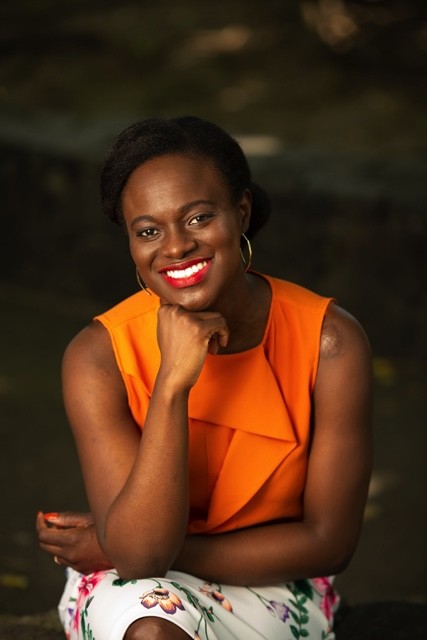David Center for the American Revolution: "The Pursuit of Happiness: Enslaved Children’s Notions of Freedom in the Age of Revolution," with Annette Joseph-Gabriel

The sixth meeting of the 2021-2022 David Center for the American Revolution Seminar Series will take place on Wednesday, April 13, 2022 at 3:00 p.m. ET on Zoom.
The presenter will be Dr. Annette Joseph-Gabriel. Dr. Joseph Gabriel is an Associate Professor of Romance Studies at Duke University. Her research focuses on race, gender, and citizenship in the French-speaking Caribbean, Africa, and France. She is the author of Reimagining Liberation: How Black Women Transformed Citizenship in the French Empire (University of Illinois Press), winner of the 2020 MLA Prize for a First Book. She has published articles in peer-reviewed journals including Small Axe, Slavery & Abolition, Eighteenth-Century Studies and The French Review, and her public writings have been featured in Al Jazeera, HuffPost, and the Washington Post. She is a recipient of the Carrie Chapman Catt Prize for Research on Women and Politics. She is also the managing editor of Palimpsest: A Journal on Women, Gender, and the Black International and production editor of Women in French Studies.
She will be presenting a paper titled "The Pursuit of Happiness: Enslaved Children’s Notions of Freedom in the Age of Revolution."
A description of the paper is below. The paper will be pre-circulated to registered participants in advance of the seminar meeting.
To attend the seminar and to receive a copy of the paper, please register via Zoom.
The David Center for the American Revolution Seminar serves as a forum for works-in-progress that explore topics in the era of the American Revolution (1750-1820). Questions about the series may be directed to Adrianna Link, Head of Scholarly Programs, at [email protected].
NOTE: Seminars are designed as spaces for sharing ideas and works still in-progress. For this reason, this event will not be recorded.
The Pursuit of Happiness: Enslaved Children’s Notions of Freedom in the Age of Revolution
Jean Montague was about fifteen years old when he found himself in one of the most notorious prisons in France for running away from his enslaver. His escape from Paris to the suburb of Passy had not led to his freedom. Instead, it had compounded his initial state of unfreedom as an enslaved boy by adding a new and different form of captivity, that of prisoner of the French Crown. Faced with one of two dire options for runaway slaves in France—be shipped to a life of hard labor in the colonies or die in prison—Montague made a surprising choice: he wrote a letter to Benjamin Franklin to negotiate his release. In his letter, he drew on his knowledge of laws regulating slavery in France and social perceptions about childhood to make a case for his freedom. In the next two years, between 1780 and 1782, Montague continued to elude his enslaver. He claimed the protection of England’s Freedom Principle when he touched English soil, and was accused of instigating a mutiny in international waters. Each instance of flight drew him further into the orbit of the political intrigue of three entangled empires, France, the United States, and England, in the age of revolution. In the cycle of flight and recapture that characterized his adolescent years, his name and reputation as a perennial runaway would come to be known in the network of prominent American statesmen in Paris including Franklin, John Adams, Jonathan Williams Jr., and George Fox.
What is so striking about Montague’s story is that it is at once exceptional and emblematic. That an enslaved boy in France wrote to Franklin with an appeal for freedom is certainly surprising. At the same time, Montague’s entanglement with so many key figures of the American Revolution, encourages us to recognize as important, the many children whose experiences informed debates about slavery in the French Atlantic, but who continue to hover on the periphery of contemporary scholarly analyses of this period. Writings by enslaved children remain under-examined and under-theorized in studies about slavery in the Atlantic world. Until now, scholarship on children and slavery has focused on testimonies about childhood that are told from the perspective of adults casting a retrospective look on their youth. But the history of enslaved people’s life writing in French and in English also includes the voices of young people who authored texts that chronicled their coming of age in slavery in real time. Studying enslaved children as authors and historical actors, sheds much-needed light on their contributions to the monumental cultural, philosophical, and political shifts in the age of Atlantic revolutions.
When Montague wrote to Franklin, he claimed that it was his desire for “happiness” that caused him to run away from his enslaver. In this paper, I examine Montague’s correspondence with Franklin which I first encountered as a Digital Humanities Fellow at the American Philosophical Society Library. I compare the competing discourses on happiness that emerge in Montague’s 1780 letter and in the United States Declaration of Independence, penned four short years before by some of the very founding fathers who aided in the enslaved boy’s capture in Paris. Reading across the French and American contexts, I aim to show that Montague equated freedom with happiness as communal relation. By routing his idea of liberty through this collective happiness, his letter disrupts the ways that “life, liberty, and the pursuit of happiness” would over time come to be equated with individual rights, ownership, and private property. This paper is drawn from my monograph in progress, Enslaved Childhoods, that examines enslaved children’s ideas about personhood in their writings. Montague’s story, read alongside the texts and testimonies of five other enslaved children from Senegal, Saint Domingue, England, and New York, illuminates young people’s contributions to political and philosophical debates about freedom in the Atlantic world.
